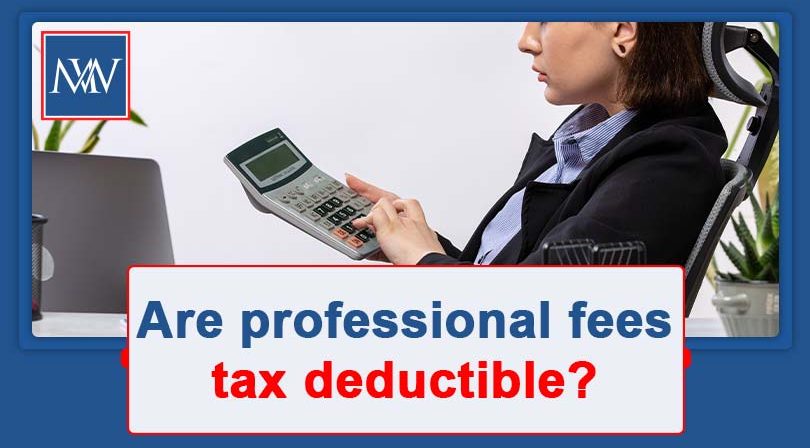
Are professional fees tax deductible?
The answer to this question depends on what type of professional fees have been incurred.
Professional fees are income and corporation tax deductible if incurred ‘wholly and exclusively’ for the trade, profession, or business. However, they must not be capital or losses not connected with/ arising out of the trade. The situation is not always clear-cut and the circumstances surrounding the payment and the precise nature of the professional services must be examined.
Wholly and exclusively
Whether a payment can be claimed under the ‘wholly and exclusively’ rules can be explained using accounting fees as an example. Fees incurred for preparing accounts for commercial reasons satisfy the ‘wholly and exclusively’ test. In strictness, any additional fees incurred for computing and agreeing to the tax liability on trading profits are not allowable. However, HMRC will not disallow the fees where the work relates to normal, recurring expenses incurred in preparing accounts or agreeing on the tax liability.
In comparison, the costs of completing a personal tax return or a capital gains tax computation are not allowable as they are not wholly and exclusively incurred. However, in practice, HMRC’s approach is that the cost of preparing the return as a proportion of the total fee would be too small to be material.
Capital assets
Where professional fees are incurred in connection with the acquisition, disposal or modification of a capital asset, the situation becomes more complex. Fees relating to capital expenditure are allowable but against capital gains tax rather than income tax.
Leases
Fees incurred on the renewal of a short lease with the owner’s consent are a capital expense, but HMRC has stated that, as the amount is likely to be small, such fees may be allowed against income tax on de minimis grounds. Situations where the amounts are sizeable and as such deductible as a capital expense include:
- where the new lease is for a long term (e.g. more than 50 years); or
- where the lease provides for the payment of a premium – the disallowance may be limited to a proportion of the renewal expenses appropriate to the premium, etc.
Restructuring of a business
Professional fees incurred in connection with the acquisition, alteration, enhancement, or defense of the fundamental structure of a business are generally deemed to be capital. HMRC gives these activities as examples:
- forming, renewing, varying, or dissolving a partnership
- negotiating a merger between companies or partnerships
- forming and registering a company
- defending against a petition by shareholders to wind up a company.
Loan finance
Fees incurred in connection with raising, repaying, or replacing long-term finance, or rearranging the terms on which such finance is borrowed, would not be income tax deductible as the loan would be capital. The expense would follow the reason for the loan which is raising capital. However, a statutory deduction applying only to income tax allows the incidental costs of raising loan finance. Any costs not expressly relieved (e.g. a penalty for early repayment) remain allowable but as capital.
In calculating the profits of a trade using the cash basis of accounting, the general rule is that no deduction is allowed for interest paid on a loan. For companies, the incidental costs of raising loan finance are dealt with under the loan relationships rules.
Plant and Machinery
Should the business use traditional invoice accounting, professional fees (e.g. survey fees, architects’ fees, quantity surveyors’ fees, legal costs) incurred relating to the acquisition, transport, and installation of plant or machinery are added to the cost as expenditure incurred under capital allowances on the provision of the plant or machinery.
Partner note:
Capital Allowances Manual CA20007
HMRC Capital v Revenue Expenditure Toolkit
S58 Income Tax (Trading and Other Income) Act 2005
Business Income Manual BIM45800
For more information, Book a Free Consultation
Need Accountancy Support?
For information on bespoke training, or if you have any other questions for Makesworth Accountant, please fill in your details below
















 151
151